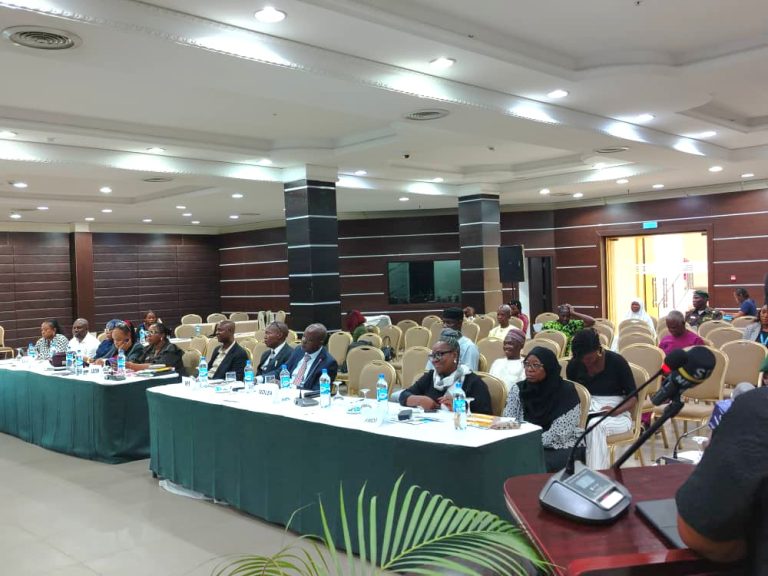Health professionals have raised alarms over the inadequate mental health services and inhumane treatment of mentally ill inmates in detention centers, warning that such conditions exacerbate their health issues and constitute torture and abuse.
The concerns were voiced on Tuesday in Abuja during the second public hearing on alleged corruption and other violations within the Nigeria Correctional Service (NCoS).
Prof. Taiwo Obindo, President of the Association of Psychiatrists in Nigeria (APN), emphasized the urgent need for mental health professionals, including psychiatrists, therapists, and social workers, in Nigeria’s correctional facilities. He stressed that such professionals are essential to address the challenges faced by mentally ill inmates and to break the cycle of torture and abuse.
Obindo criticized the practice of delaying hospital treatment for mentally ill inmates until their conditions become critical, labeling it as negligence by correctional officers that worsens their health. He also highlighted other forms of abuse, such as isolating mentally ill inmates and locking them up for extended periods.
“We strongly discourage the handcuffing and chaining of mentally ill inmates to beds. It is unacceptable for someone to be chained to a bed for days, forced to eat, urinate, and perform other bodily functions in the same place. This must stop,” he stated.
Obindo pointed out that poor health conditions, combined with the stress of imprisonment, severely impact inmates’ well-being. He called for regular mental health screenings before and after admission to custody, stating, “We shouldn’t wait until inmates are critically ill before intervening.”
He also noted that the shortage of caregivers for mentally ill inmates is a form of abuse and torture. To address this, he urged better funding and increased manpower to tackle mental health issues within the correctional system.
Obindo identified two major challenges hindering effective mental health treatment: the absence of a forensic hospital in Nigeria and insufficient funding for inmates’ mental healthcare. As a result, relatives of inmates often bear the financial burden, including out-of-pocket expenses and fuel costs for transporting inmates to hospitals.
Dr. Uju Agomoh, Secretary of the independent investigative panel, called on medical professionals to contribute to prison reform efforts, emphasizing their critical role. She urged clinical psychologists, psychiatrists, pharmacists, and laboratory technologists to actively participate in improving inmates’ mental health.
Agomoh, who is also the Founder of Prisoners’ Rehabilitation and Welfare Action (PRAWA), encouraged medical professionals to provide pro-bono services to mentally ill inmates regularly. She suggested that such initiatives could help address the shortage of professionals and improve mental healthcare in correctional facilities.
She also urged the government to intensify efforts to ensure mentally ill inmates receive the necessary care and support. “Pro-bono services in custodial centers could be made a requirement for membership in health bodies. This would demonstrate commitment to ongoing correctional service reforms in Nigeria,” she proposed.
Agomoh commended the government’s efforts to address allegations of abuse, torture, corruption, and inhumane treatment in Nigerian correctional facilities. However, she stressed that lasting reforms require collaboration from professional bodies across various sectors to support government initiatives.
Dr. Abigail Oni, representing the National Association of Clinical Psychologists (NACP), highlighted the need to prioritize mental health for both inmates and correctional officers. She emphasized that integrating mental healthcare into the correctional system and ensuring its proper implementation are crucial for the well-being of all stakeholders.
Oni, a licensed psychologist and trauma specialist, recommended substance abuse counseling and dual diagnosis treatment for inmates with recurring disorders. She stated that these measures would improve behavioral outcomes, reduce violence, enhance rehabilitation, and decrease repeat offenses in custodial centers.
“This commitment also promotes human rights, ensures ethical treatment of inmates, and supports the mental health of correctional officers, boosting morale and service delivery,” she added.



